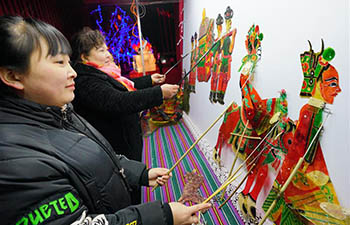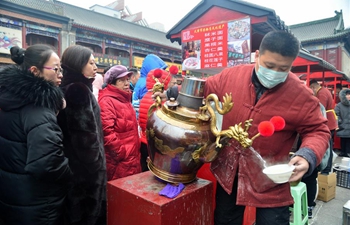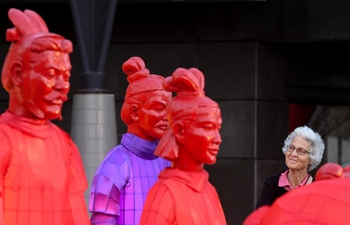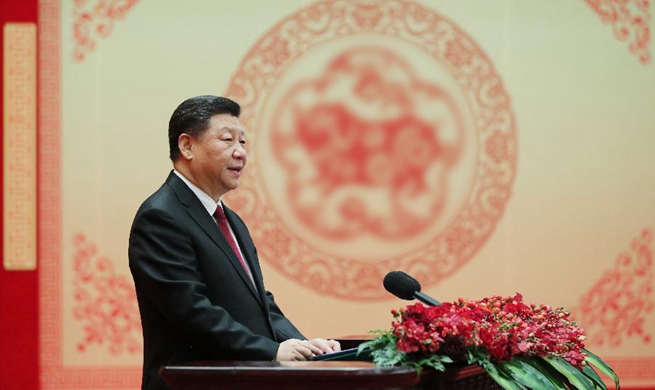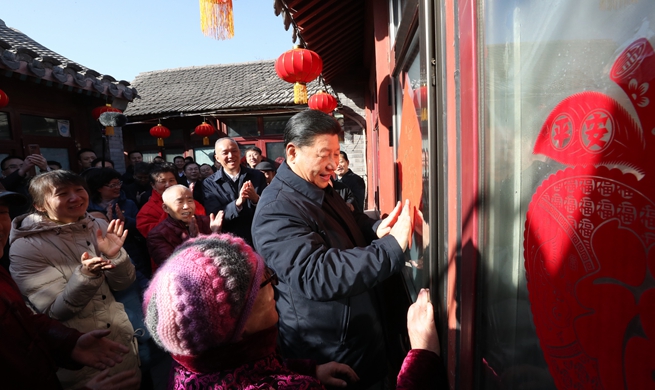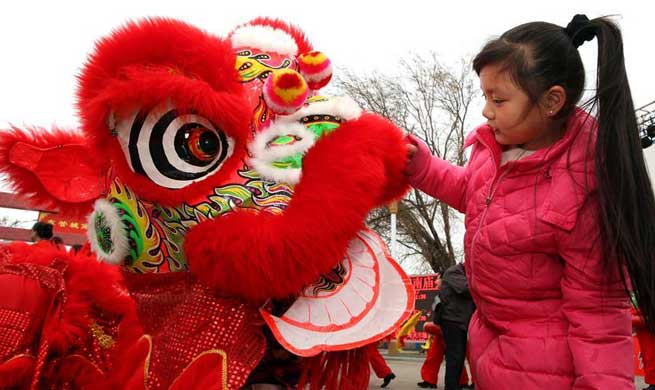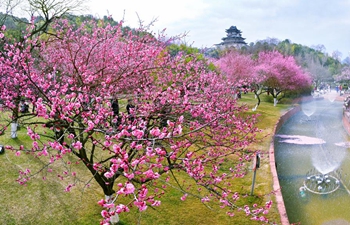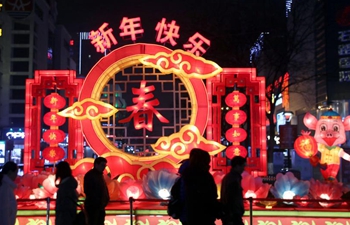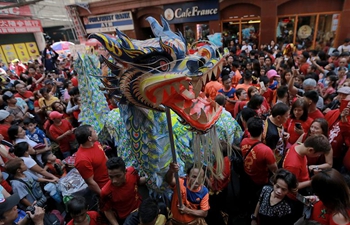by Mahmoud Darwesh, Najla Hamdy
TRIPOLI, Feb. 7 (Xinhua) -- The residents of the neighborhood of Sabri in Libya's eastern city of Benghazi have been struggling with their new lives since returning home after four years of displacement because of the armed conflict between the eastern-based army and militant groups.
In Sabri, Benghazi's most affected area by the conflict, most of the houses are either destroyed or badly damaged, with basic services, such as water and electricity, difficult to access.
"We suffered the physical and psychological oppression of displacement for more than four years ... We suffered severe shortage of cash, as payment of our salaries was delayed," Ibrahim Emsallem, a resident of Sabri, told Xinhua.
"I feel like living in an abandoned place. I bought an electric generator, bought water and secured many of our urgent needs by myself," Emsallem said.
Halima Funas, a widowed mother of three, called on the authorities to provide urgent help.
"Life is very difficult when you have no one to support you. No husband, no cash, and a house almost destroyed. I am trying to live in this house despite the damage," Funas told Xinhua.
"We are humans, not stones," she lamented.
Fatima Mohamed, a mother who lost her only son in the war, expressed her deep dismay at the negligence of the government.
"My son is gone and my life has collapsed after his death. The government did nothing to help except to remove some destroyed buildings and fix a few water pipes and electricity cables," Mohamed told Xinhua.
Mahmoud al-Sabbah, 71, also said the authorities provided little support to stabilize the situation.
"Crime is still high. We could die any moment. Therefore, we must spare no effort to achieve stability in our country," he told Xinhua.
Benghazi, second largest city of Libya and birthplace of the 2011 uprising that toppled former leader Muammar Gaddafi, witnessed a fierce war between the army led by Khalifa Haftar and extremist groups.
In June 2017, Haftar announced the takeover of Benghazi and defeat of the rival armed groups in the city.
According to the Office of the UN High Commissioner for Refugees (UNHCR), Benghazi is hosting 26,100 internally displaced persons, the largest number in Libya, and 189,025 returnees.
"The majority face difficulties in accessing safe and dignified shelter, as well as medical care, education, and essential goods and services. Many are exposed to risks connected to explosive remnants of war and unexploded ordnances in urban areas," the UNHCR said earlier in February.
